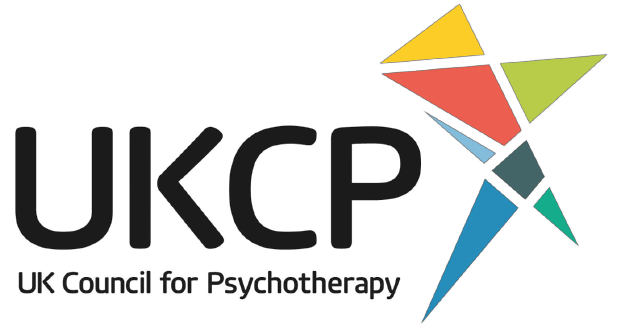It has become much more common in recent years to hear people talk about their mental health challenges, especially around feelings of anxiety and depression. It remains rather less common to hear people talk about the types of altered states which can end people up in psychiatric wards – where the experiences would most likely be diagnosed as ‘psychosis’.
I put the term in inverted commas in recognition of the fact that not everyone who lives through such experiences finds it helpful to conceive of them in this way. Mental health diagnosis is not a precise science after all. And it is not altogether surprising that many do not wish to attach themselves to such diagnostic labels when there is such persistent stigma around them. Calling someone ‘psychotic’ in everyday conversation would hardly be considered a compliment.
The kind of experiences I’m talking about here might include things like seeing, hearing or believing things that are not real for others, and which are variously accompanied by pronounced feelings of terror, depression, euphoria, shame, isolation and confusion, to name but a few. These types of experiences can be profoundly destabilising and life-changing for those that leave through them, fundamentally altering their perceptions of who they are and what they feel able to do in life.
While the difficulties associated with these experiences can be monumental, it is not the case that absolutely every aspect is so challenging. There are plenty of people who hear voices, for example, but do not experience this as especially distressing; the voices are benevolent and help guide them through life. Periods of ‘mania’ can involve moments of euphoria that are totally glorious, helping people feel connected and energised in a way that goes far beyond our usual range of emotions.
Experiences of 'psychosis' and their impact
Often the immediate impact of these experiences is that they interrupt much of what a person knows of their life beforehand and, after the acute phase subsidies, some kind of reckoning will be required with what the person has seen, experienced, felt or done during this altered state.
Many people find solace in the medical understanding of their experiences; in the idea that they entered a period of ‘psychosis’ in which they were unwell. Much in the same way that would be true for a physical condition, they focus on ‘getting better’ through treatment (which may or may not also entail antipsychotic medication or mood stabilisers).
Others look to different models to interpret what they have experienced, perhaps viewing it as a breakthrough of sorts, albeit an extremely turbulent and distressing one, in which different parts of their personality burst through. Often this kind of model includes some kind of spiritual or religious element too.
Paths to recovery
The manner in which people interpret what they have experienced also shapes what they wish to do afterwards – whether that be recovering, as far as possible, the life they had before their altered state, or whether they’re more drawn towards gradually integrating their experiences and new understanding of themselves into an updated version of their identity.
However we conceive of it, there are often similar tasks to attend to after the acute phase subsidises. Part of this will relate to practical matters such as dealing with matters related to work, finances and housing that may have been dropped during the period of psychosis-like experiences, when they seemed less important. Other focuses in this initial period can include (re-)learning what activities seem feasible to take on each day or each week, while also working out what people, activities and situations may help support recovery and which may hold it back.
The challenges involved with working through and beyond some of these states should not be underestimated. Family and friends might help with some of this, but it is likely that some other avenues of support will also be required. Peer and support groups are really useful for some – especially when it comes to lessening feelings of shame and loneliness – as it helps overcome the idea that they are different in having lived through such things.
Therapy can be a good support for some of the practical matters, as well as the many less tangible impacts that living through experiences such as these may have. Many emerge from their most intense phase finding that they are beset by questions: How did this happen? And why did it happen to me? Am I crazy? What if I relapse? How can I trust what I see/hear/believe? Can I tell others about what I went through? What will they think of me? Shame is also common, about the things that you’ve said or done during the acute phase, or from difficulties in incorporating this experience into your understanding of who you are.
If all that were not enough, those emerging from these periods of crisis often experience a very profound sense of loss, or even grief, as they do so. They may be grieving for the person they once felt themselves to be; for the things they’ve missed out while in their altered state; for the things they no longer feel able to do; and for the identity of a ‘well person’ that they’re leaving behind.
It can be very fruitful to explore questions around the things that people may have seen, heard or believed during their acute period, as these do not come from nowhere, but are rather informed by the specific life history, circumstances and cultural context of those who experience them. Plenty of meaning can be found from an exploration of each aspect. And while it can be a long road, after some time, people may even come to feel that their experiences have ultimately been a blessing; an extremely difficult one undoubtedly, but a blessing all the same.
Mental health and recovery resources in Oxford
Please contact me if you are interested in therapeutic work (in Oxford or online) to support any of the above. For practical assistance and recovery groups within the local area, please see the following organisations:
Restore – Employability coaching and recovery groups throughout Oxfordshire.
Oxfordshire Recovery College – Free to attend courses on mental health and recovery.
Oxfordshire Mind – Information and support for a range of mental health problems.



